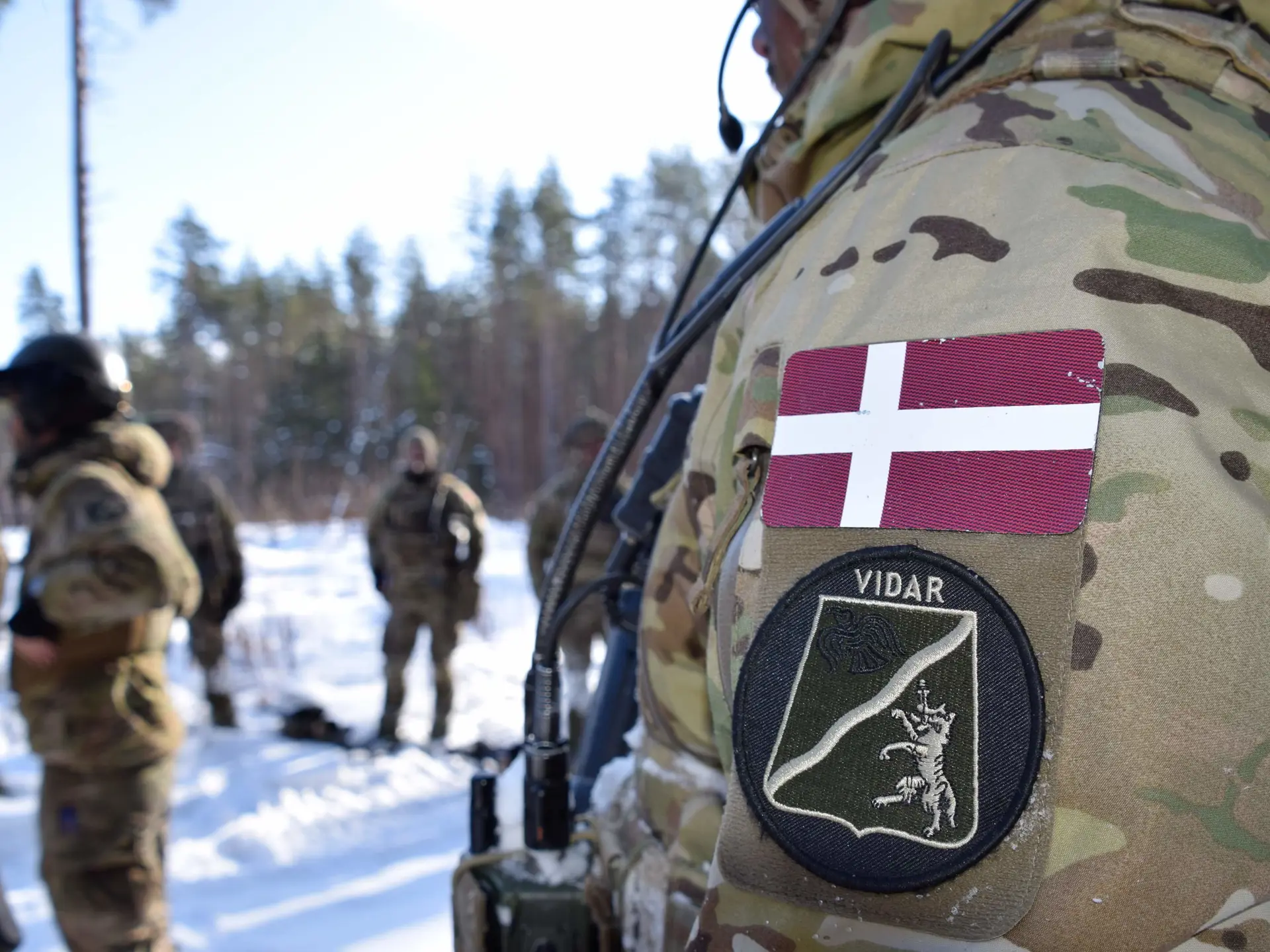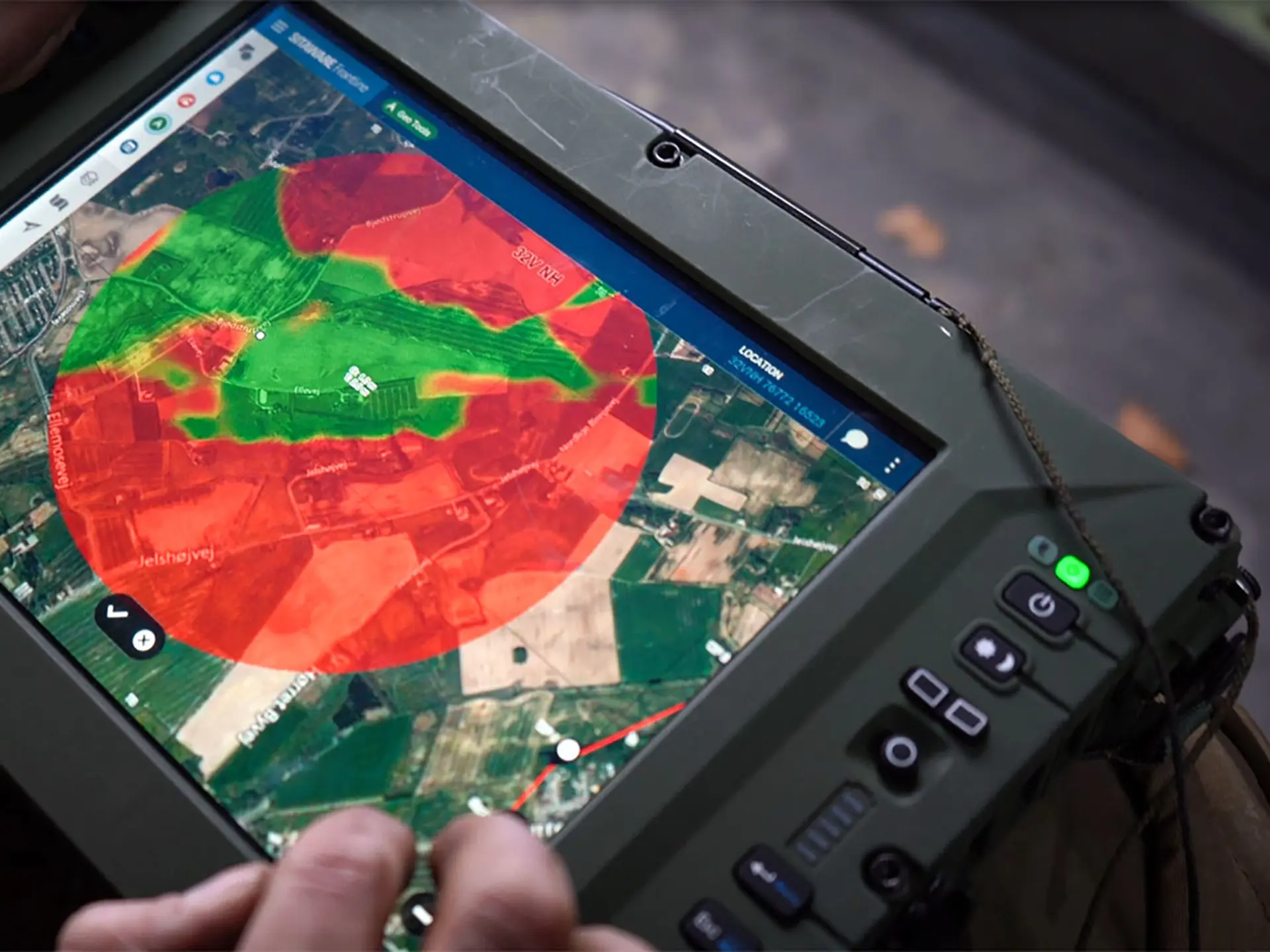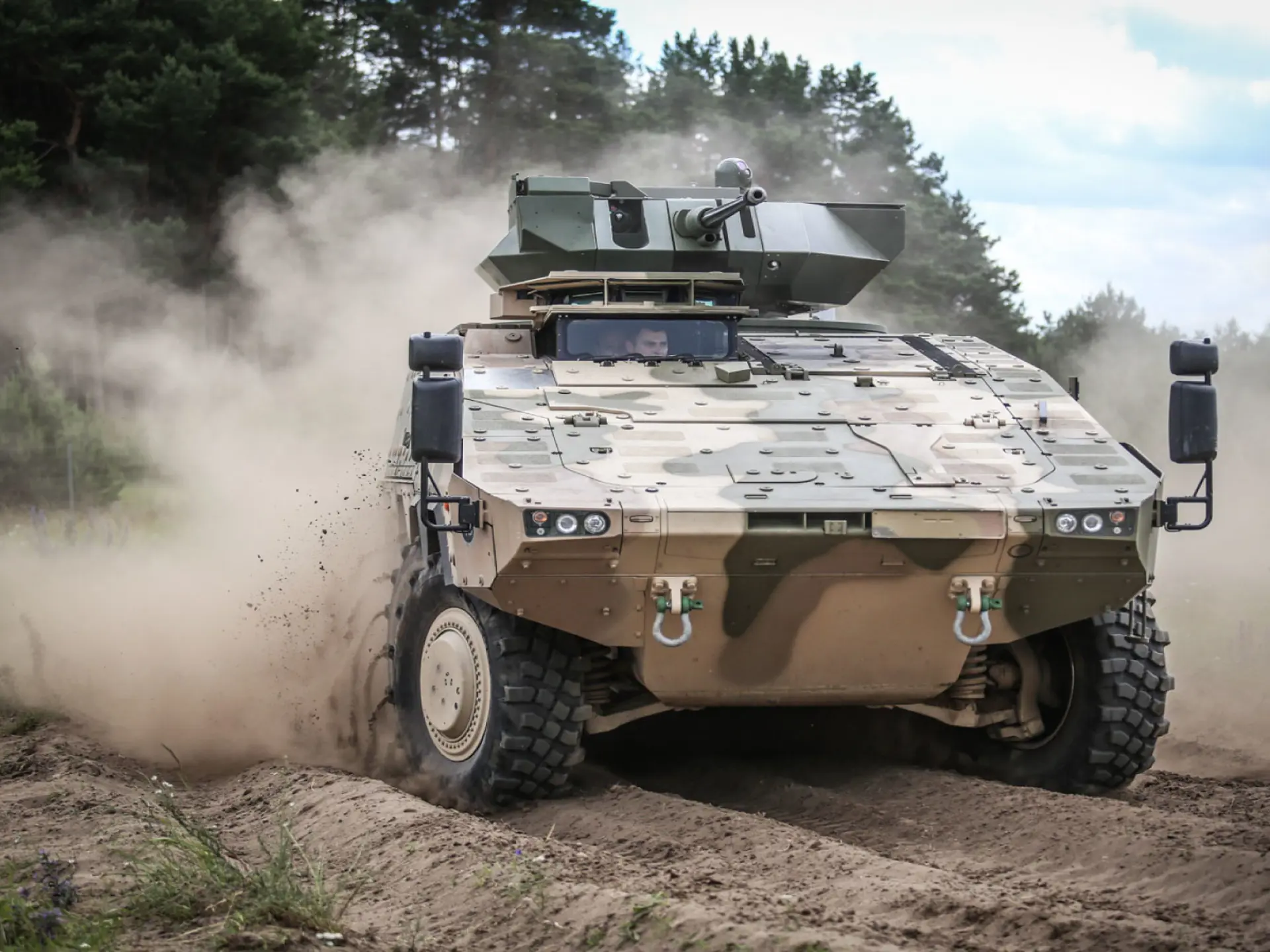SitaWare on the Frontline
On NATO’s eastern flank SitaWare Frontline is delivering enhanced situational awareness and C2 to the Danish Army.
In Tapa, Estonia, NATO’s Enhanced Forward Presence 1 (eFP 1) - a multinational battlegroup - stands ready to defend the alliance, providing a bulwark on its eastern edge that forms part of the biggest reinforcement of NATO’s collective defence in a generation.
Along with three further battlegroups located in Latvia, Lithuania, and Poland, the elements of the UK-led eFP1 are at a high state of readiness, and it is here that soldiers from the Danish Army’s Guard Hussar Regiment – and its support units – maintain a company-strength force equipped with CV90 and Piranha V infantry fighting vehicles (IFVs) that employ the SitaWare Frontline battle management system (BMS).
Tackling the peer threat
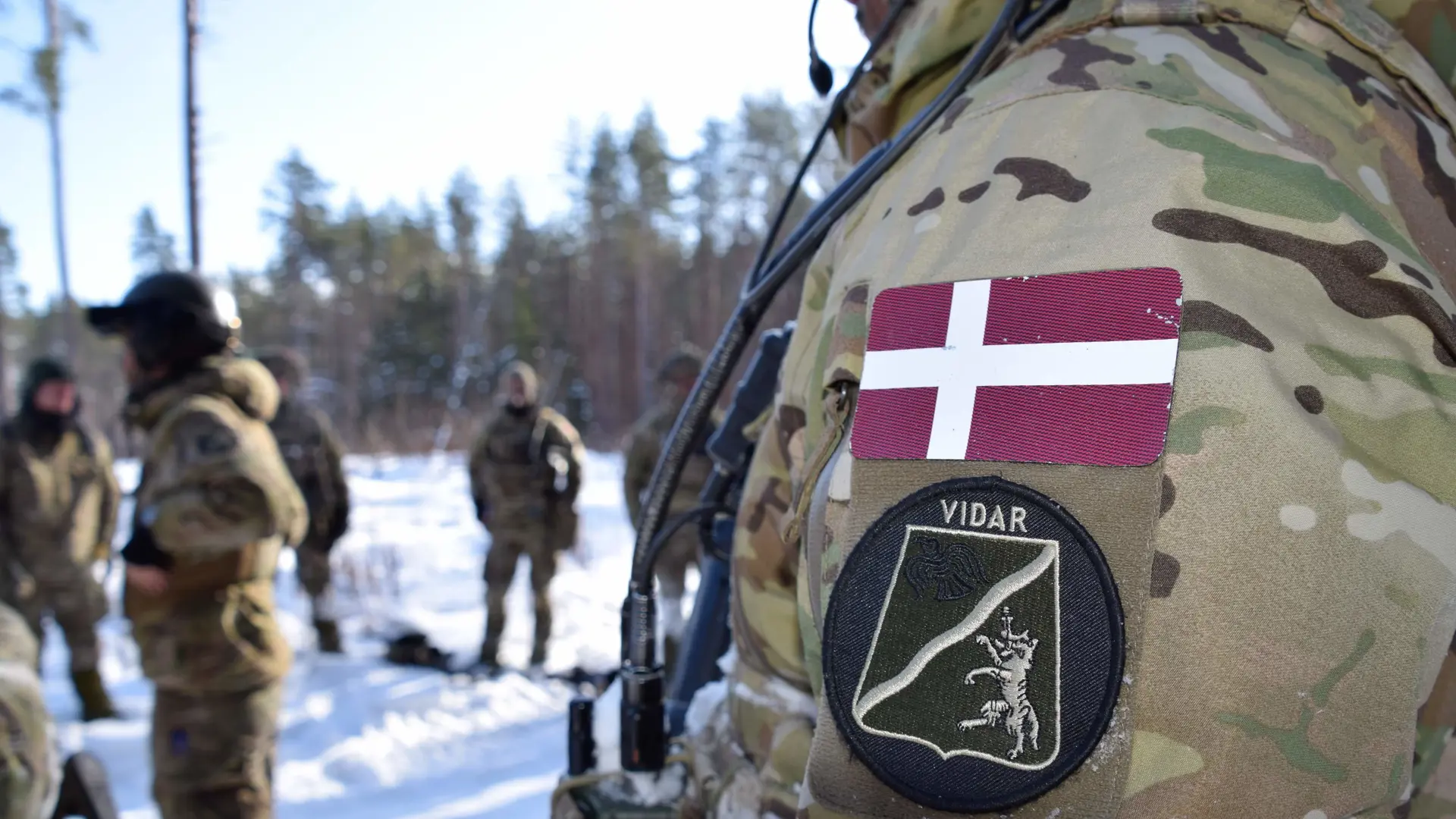
The contingent’s training is centred on preparing for warfare with a peer threat, explains company commander Major Mads Rasmussen, a distinct shift from the counter insurgency operations that the Danish Army – and much of NATO – has been focused on for close to 20 years, and one in which speed of manoeuvre is of paramount importance.
It is in the ability to provide a clear operational picture and support a high tempo that Major Rasmussen sees as the biggest benefits of SitaWare Frontline. “I know where all of my units are, where all of my vehicles are, all of the time. And I know where the enemy is when they are reported, because I can see it on my screen in almost real time.”
The unit began fielding SitaWare Frontline in 2018 and has gradually increased its use of the system and shifted away from older operating procedures, Major Rasmussen notes, “We needed to rethink our entire SOPs (standard operating procedures) because we had a new system that we had to incorporate into our way of doing things. It has been a long process, but it has been totally worth it in the context of situational awareness, how we can affect the battlefield, and especially with how we are more flexible and can do more hasty manoeuvres now.”
Shortening the OODA loop
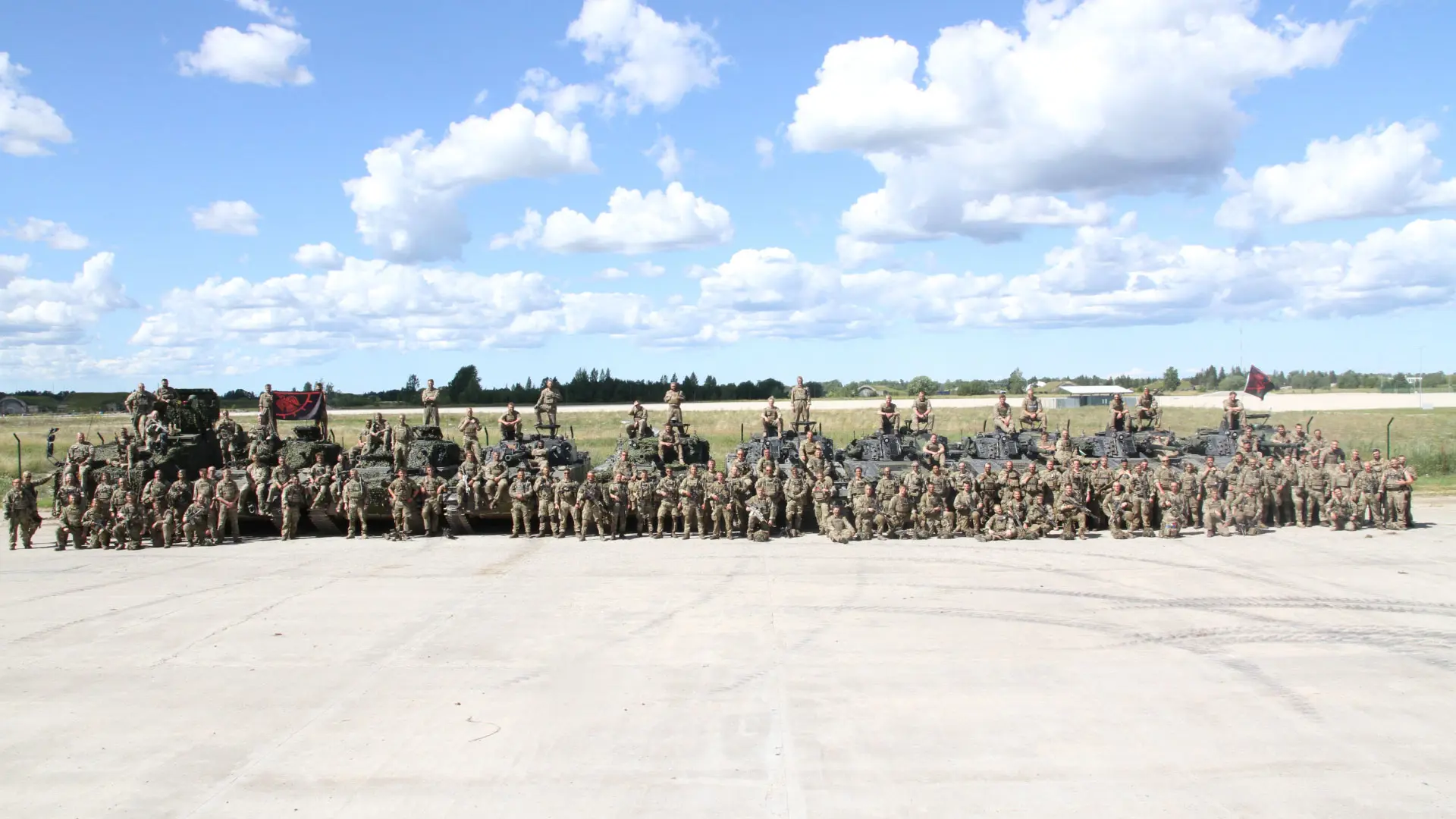
Major Rasmussen highlights the importance of shortening the OODA – observe, orient, decide, act – loop in warfare with a peer threat, pointing to the planning aspects of SitaWare Frontline as being beneficial in this regard, “That is one of the best points of Frontline. It enables me to make plans quickly and react to the current situation on the battlefield, and this is a game changer when you are fighting with a near-peer or peer enemy,” adding that the blue-force tracking aspect alone would also have been a game changer in Afghanistan.
The introduction of SitaWare Frontline has seen a reduction in the use of voice communications, which has been beneficial, Major Rasmussen notes, “We use radios less because we have the BMS, I don’t need my platoons to tell me where they are all of the time, because I can just look at the screen and that saves us a lot of communications. We can coordinate on the screen instead of by voice, that saves us a lot of time.”
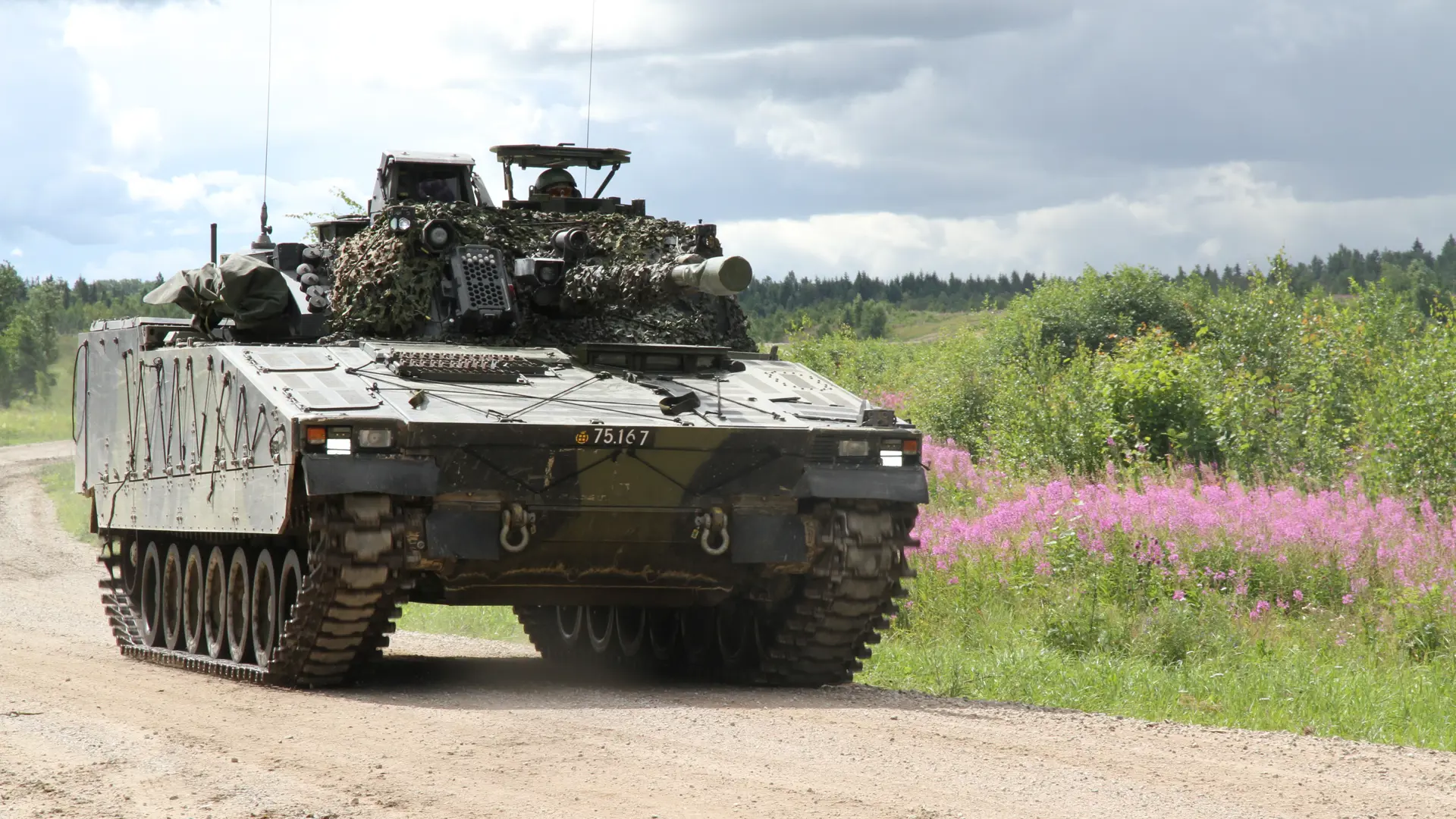
Major Rasmussen explains that SitaWare Frontline’s chat function is used extensively for coordination and sending plans to platoons, “It removes misunderstandings because you can see [orders] on the screen. If I’m drawing an arc of fire, for example, I can just send it out and they can see it on their screens. They don’t need to receive it via voice and draw the grid on the map.”
Along with the armoured infantry elements, the force is supported by a joint terminal attack controller (JTAC) and a forward artillery observer (FAO), both of which benefit from the enhanced situational awareness and coordination that SitaWare Frontline brings, Major Rasmussen says, adding that the introduction into service of the new SitaWare fires support system will further this.
Sergeant First Class Anders Pedersen, the company’s Operations Sergeant, points to SitaWare Frontline’s ease of use and interface as being key, “[Frontline] has an intuitive interface and navigation, if you click the wrong menu it is easy to go back and find what you want … it is very easy to access hasty plans and schemes of manoeuvre.”
Elegance through simplicity
The BMS also helps junior commanders operate autonomously in carrying out their orders, “[They are] better at working together now. They can see the entire plan, where the enemy are, and react quicker. Particularly the IFV commanders. Before they had a tendency to focus on what was in front of them, but now they can see the entire battlefield and what the current situation is,” Major Rasmussen notes.
